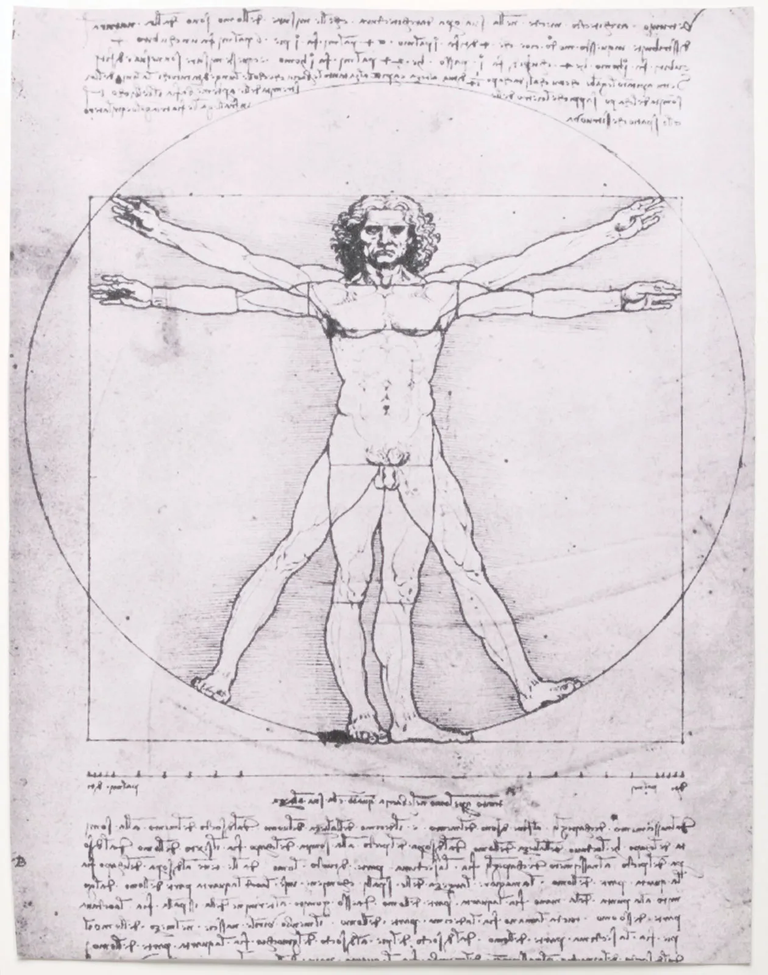The Human Body as a Case for Centralization

How many hearts does a person have?
What about livers or gall bladders or appendix? If it was evolutionarily sound to have three hearts, we'd have three hearts, but it's not so we don't. A cow might have four stomachs, but are they all interchangeable? Of course not. Each one has a specialized purpose.

Sometimes robust redundancy is a failed-state.
It's all a matter of context. Decentralization isn't always good just like centralization isn't always bad, even if that's how many people within this space have been conditioned. If the overhead cost of redundancy is greater than the hardship it prevents, well then there's little mathematical reason to employ such redundancies and safeguards.
If you had the option of backing up your database just in case a hacker encrypted all your information and held it hostage, would you do it? Surely we'd protect against the ransomware. But what if the cost of backing up the data was far greater than paying the ransom? Would you still do it? This is a classic case of the cure being worse than the disease itself, and there's no guarantee we'd ever get sick in the first place.
If a person gets an arm cut off why doesn't their body just grow a new one? I assume there's more than one reason for this, but at the core of the issue is that our genetic code just simply doesn't hold the information required for such a miraculous recovery. That level of redundancy is clearly not worth it on the evolutionary scale.
Point being that while society and philosophy hold the sanctity of human life in very high regard, the actual building-blocks from which we are all built do not care. If someone gets their arm cut off: let them die or be forever crippled. There are plenty of other fully functioning humans to replace them. Mother Nature is a harsh matron, however pragmatic.
Cells are decentralized, but organs are not.
We seem to find ourselves in the stem-cell phase of crypto. Everything needs to be as decentralized and robust as possible so that we can branch out and specialize functions later down the road through painstaking evolution. The stem-cells we produce today will eventually be granted some kind of specialization and function, and once that happens there is no turning back. Sink or swim.
As we can see the current failure rate is quite high, which is to be expected. Most adaptations end quite tragically. If you get bitten by a radioactive spider, you die 99.999999% of the time. Coincidentally those are the same odds of a program working after button-mashing the keyboard. Spiderman sure was a lucky dude.

The Wild West metaphor in crypto also applies in this exact same manner. The thought is that as time goes by the lawlessness of this space will be brought to heel, and a new more civilized form of governance will emerge from the cocoon.
The problem with these theories are the timelines. We very well might not even live to see past the stem-cell phase or the Wild West phase. Most assume the Wild West will end because legacy governance is the one that tamed it, but the entire point of crypto is self-sovereignty, so that makes very little sense on a philosophical level (or simply implies that crypto has systemically failed as a whole).
While the comparison of crypto networks to life itself might be a bit thin, I still can't help but notice the similarities. Certainly crypto is not technically alive, but also it has a certain agency that is hard to ignore. These networks move to protect themselves from threats just like a living entity would.
But honestly we are so early in the game at this point I wouldn't think of crypto as any kind of discernable animal, but more like an amorphous blob of cells just sort of floating around trying to stay alive. We are microscopic in size and have so much room for growth that it's difficult to imagine where we could even go from here. The possible forks are infinite in nature.
So while centralization might be the way to go eventually, it's quite difficult to see the benefit of such things now. Maybe after we colonize a few planets and make first-contact with aliens or something. After all, electricity and light only move at the speed of light, yeah? It would take three minutes (at best given the current orbit) to even send a single message to Mars. The implications of such limitations heavily point to the idea that neither Bitcoin, nor any other crypto, could exist as an interplanetary network. Such developments require faster-than-light (FTL) travel. Barring that development it's just not going to happen, and the need for an interplanetary exchange would be quite high. Perhaps something like that would be a good reason to centralize a crypto bottleneck. It's hard to say.

Conclusion
Well this post is all very sci-fi and jam packed full of random speculation. Certainly I did not intend for that to happen but here we are. I suppose ultimately what I was trying to say is that we should be using the right tool for the right job. Lot's of people in crypto seem to think that decentralization is the right tool for everything no matter the cost. I'm skeptical. When all you have is a hammer: every problem looks like a nail.
Congratulations @edicted! You have completed the following achievement on the Hive blockchain And have been rewarded with New badge(s)
Your next target is to reach 2300 posts.
You can view your badges on your board and compare yourself to others in the Ranking
If you no longer want to receive notifications, reply to this comment with the word
STOPTo support your work, I also upvoted your post!
Check out our last posts:
Mars could easily be incorporated into an interplanetary network. You just delay all Martian blocks until they're confirmed.
Thanks!
Heh I'm very confused by this.
How would nodes on Mars create the blocks in the first place?
By the time a node on Mars knows I want to send $100 to Bob a node on Earth has already rolled that transaction into a block and confirmed it into that different block. Blocks would constantly be rolled back as longer chains on Mars randomly popped into existence with a huge delay. The latency of the network and connections between nodes is super important. It's surely not viable or even necessary to run the same network in two places at once. Why would people on Mars need to transfer money to people on Earth to begin with? Remittances?
Heh I feel like you're trolling me which might be deserved.
Hm I guess I didn't consider that Mars can easily use BTC they just can't mine blocks there.
Two eyes and two kidneys, but only one liver? Well, at least the liver is pretty good at repairing itself. As long as you don’t overwhelm it with too much alcohol. 😅
and a five finger discount!
Its almost always decentralized vs centralized. But as you’ve said there’s a use case for each. Different strokes for different folks. For me, why choose one ofer the other when you can take advantage of the benefits of both platforms. What matters is you do research and be aware of the cons of each.
https://leofinance.io/threads/ngobaby/re-ngobaby-2amm3jrkl
The rewards earned on this comment will go directly to the people ( ngobaby ) sharing the post on LeoThreads,LikeTu,dBuzz.
Podcasting and RSS feeds are a wonderful example of just enough decentralisation vs centralisation.
And with the addition of Podping: decentralised and permissionless via Hive whilst still being used in a largely centralised way via PodcastIndex.org, we've added one critical improvement which really needs to be decentralised.
Podping is a great example for a lot of reasons.
It's really great work you are doing and truly in the actual spirit of open-source development.
Most devs would have jammed some BS token in there and tried to profit from it.
Kudos!
Interesting post, definitely food for thoughts.
From the perspective of systems the revolution is not about decentralization, it's about recombination of centralization-decentralizion accents to another stable state which is more efficient than the previous one.
Decentralization might be seen from a personal perspective as a process of giving back diginty and souveregnity to individual cells, absolutism is understandable from that point of view. Wisdom of trauma.
And there is decentralization as a process. As long as this what it too centralized isn't decentralized yet, the push for decentralization might be a dominant force and absolutism is also understandable here.
You seem to understand my post better than I do.
Glad someone does!
Evolutionary perspective is my thing, and I think about that kind of stuff too.
Consciousness is centralized. Pattern recognizers formed by groups of neurons are decentralized. Also, neurons themselves and impulses are decentralized.
Ah very nice addition to the conversation.
It seems to be all a matter of scale and context in the end.
Wow this is great, you really analysed everything here, you have really thought me so much about the human body which all of us are involved into,
I mean there's nobody without human body and all the organs you have mentioned here, thank you for the expository lectures you have given to us. I have learnt so much.
!PGM
!PIZZA
!CTP
BUY AND STAKE THE PGM TO SEND A LOT OF TOKENS!
The tokens that the command sends are: 0.1 PGM-0.1 LVL-0.1 THGAMING-0.05 DEC-15 SBT-1 STARBITS-[0.00000001 BTC (SWAP.BTC) only if you have 2500 PGM in stake or more ]
5000 PGM IN STAKE = 2x rewards!
Discord
Support the curation account @ pgm-curator with a delegation 10 HP - 50 HP - 100 HP - 500 HP - 1000 HP
Get potential votes from @ pgm-curator by paying in PGM, here is a guide
I'm a bot, if you want a hand ask @ zottone444
$PIZZA slices delivered:
@torran(7/10) tipped @edicted
This is not a coincidence
Well, the fact that cells are decentralized is comforting, atleast certain worn out tissues could repair or replace themselves but the organs remain centralized, could never be replaced when damaged